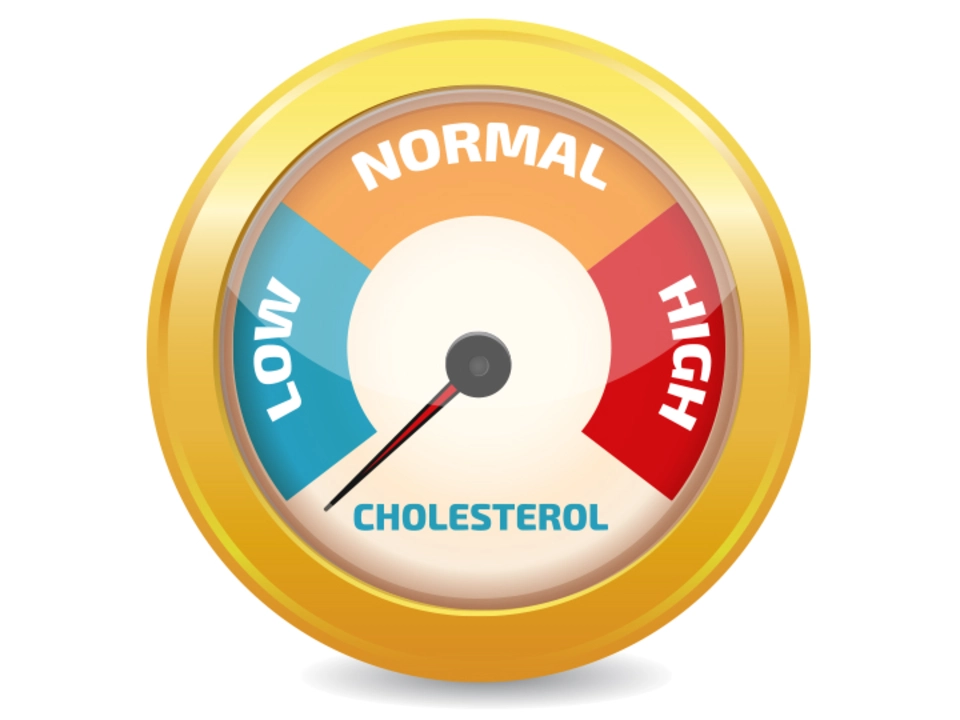Understanding Cholesterol and Its Role in the Body
Before diving into the connection between cholesterol levels and stroke risk, it's important to first understand what cholesterol is and its role in our bodies. Cholesterol is a waxy, fat-like substance that is found in every cell of our body. It is a vital component in the production of hormones, vitamin D, and substances that help us digest food. Our bodies naturally produce cholesterol, but it can also be found in the foods we eat, such as meat, dairy products, and eggs.
There are two main types of cholesterol: low-density lipoprotein (LDL) and high-density lipoprotein (HDL). LDL is often referred to as "bad" cholesterol because high levels of LDL can lead to the buildup of plaque in the arteries, which can increase the risk of heart disease and stroke. On the other hand, HDL is known as "good" cholesterol because it helps remove LDL from the bloodstream, reducing the risk of plaque buildup and heart disease.
How High Cholesterol Levels Increase Stroke Risk
Now that we have a basic understanding of cholesterol and its role in the body, let's discuss how high cholesterol levels can increase the risk of stroke. When there is an excess of LDL cholesterol in the bloodstream, it can accumulate on the walls of the arteries, forming a thick, hard substance called plaque. Over time, this plaque buildup can narrow the arteries and reduce blood flow to the brain. When blood flow to the brain is reduced or blocked, a stroke can occur.
Furthermore, the presence of plaque in the arteries can make it more likely for blood clots to form. If a clot forms in an artery leading to the brain, it can also cause a stroke. In summary, high cholesterol levels can lead to plaque buildup and blood clot formation, both of which can significantly increase the risk of stroke.
Monitoring and Managing Cholesterol Levels
Given the connection between high cholesterol levels and stroke risk, it's essential to monitor and manage your cholesterol levels. Regular cholesterol screenings can help you stay informed about your cholesterol levels and make appropriate lifestyle changes if needed. It's generally recommended that adults have their cholesterol checked every four to six years, though this may vary depending on individual risk factors and medical history.
If your cholesterol levels are higher than they should be, your healthcare provider may recommend making certain lifestyle changes, such as improving your diet, increasing physical activity, and quitting smoking. In some cases, medication may also be prescribed to help lower cholesterol levels.
Improving Your Diet to Lower Cholesterol Levels
One of the most effective ways to lower cholesterol levels is by making changes to your diet. Consuming a diet that is low in saturated and trans fats, and high in fiber can help lower LDL cholesterol levels and boost HDL cholesterol levels. This can be achieved by incorporating more fruits, vegetables, whole grains, and lean proteins into your meals, while also reducing your intake of processed and high-fat foods.
Additionally, consuming certain foods that are known to help lower cholesterol levels, such as nuts, seeds, and fatty fish, can provide an added benefit in your efforts to reduce your stroke risk.
Increasing Physical Activity for Better Cholesterol Management
Another important factor in managing cholesterol levels and reducing stroke risk is engaging in regular physical activity. Exercise can help raise HDL cholesterol levels, lower LDL cholesterol levels, and improve overall heart health. Aim for at least 150 minutes of moderate-intensity aerobic exercise, such as brisk walking or cycling, per week, or 75 minutes of vigorous-intensity aerobic exercise, such as running or swimming, per week.
Combining aerobic exercise with strength training and flexibility exercises can further enhance the cardiovascular benefits of physical activity and help maintain a healthy weight, another important factor in cholesterol management.
Quitting Smoking to Improve Cholesterol Levels and Heart Health
If you're a smoker, quitting can have a significant impact on your cholesterol levels and overall heart health. Smoking can lower HDL cholesterol levels, increase LDL cholesterol levels, and damage the blood vessels, making it easier for plaque to accumulate. Quitting smoking can help improve cholesterol levels, reduce inflammation, and lower the risk of heart disease and stroke.
There are various resources available to help you quit smoking, including nicotine replacement therapies, prescription medications, and support groups. Speak with your healthcare provider about the best options for you.
Medications to Manage Cholesterol Levels
In some cases, lifestyle changes alone may not be enough to lower cholesterol levels and reduce stroke risk. If this is the case for you, your healthcare provider may prescribe medication to help manage your cholesterol levels. The most common medications used for this purpose are statins, which work by blocking an enzyme in the liver that produces cholesterol.
It's important to remember that taking medication for cholesterol management should be used in conjunction with lifestyle changes, rather than as a replacement for them. Be sure to follow your healthcare provider's advice and continue to monitor your cholesterol levels regularly.
Conclusion: The Importance of Cholesterol Management in Stroke Prevention
In conclusion, maintaining healthy cholesterol levels is crucial in reducing the risk of stroke. By monitoring your cholesterol levels and making appropriate lifestyle changes, such as improving your diet, increasing physical activity, and quitting smoking, you can significantly lower your stroke risk and improve your overall heart health. If necessary, medications may also be prescribed to help manage cholesterol levels. Remember, the key to preventing stroke is staying proactive about your health and working closely with your healthcare provider to develop a tailored plan that best suits your individual needs.

